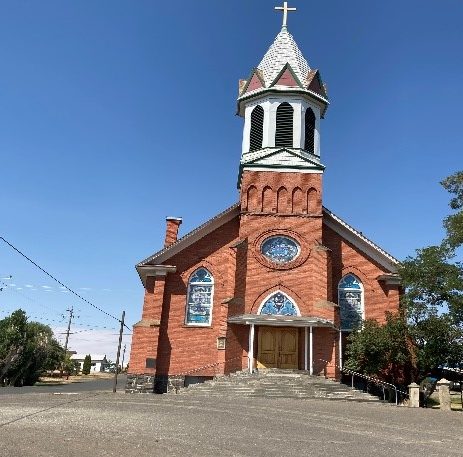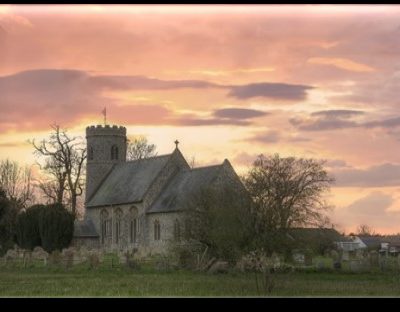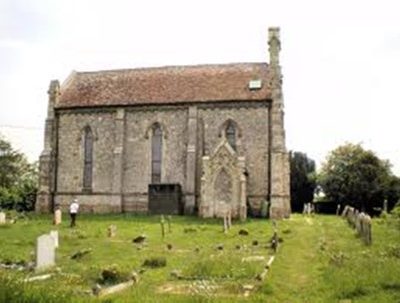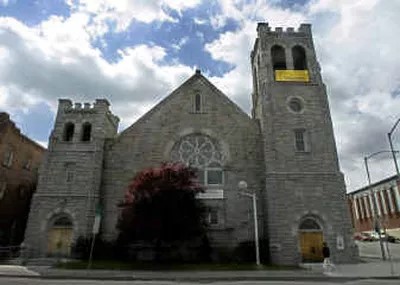Seventh Day Baptist General Conference, USA and Canada:

Seventh Day Baptists consider liberty of thought under the guidance of the Holy Spirit to be essential to Christian belief and practice. Therefore they encourage the unhindered study and open discussion of Scripture. They uphold the individual’s freedom of conscience in seeking to determine and obey the will of God.
Seventh Day Baptists are a covenant people based on the concept of regenerate membership, believer’s baptism, congregational polity, and scriptural basis for belief and practice. Seventh Day Baptists consider the Sabbath as a sign of obedience in a covenant relationship with God and not as a condition of salvation. They have not condemned those who do not accept the Sabbath but are interested at the apparent inconsistency of those who claim to accept the Bible as their source of faith and practice, yet have followed traditions of the church instead.
Seventh Day Baptists have been described by their contribution in missionary activity, educational endeavors, ecumenicity and civic responsibility. Because of the emphasis on freedom of thought and conscience, Seventh Day Baptists have represented a wide diversity of theological thought. Their common bond of the Sabbath enabled them to avoid a split during the fundamentalist-modernist controversy of the 1920s. For most of its history, the denomination has been rural-oriented but has found in more recent years its greatest growth in developing urban ministries.
The Seventh Day Baptist General Conference is organized as a conference of churches. Voting on most issues brought before the annual sessions is done by delegates from member’s churches. A General Council is empowered to act for the Conference between sessions and prepare budget and program emphases. The Council is composed of elected member’s at large and ex officio members representing the Missionary Society, the Board of Christian Education, the Tract and Communication Council, the Council on Ministry, the Women’s Society and the Memorial Fund Trustees.
History:
Seventh Day Baptists can date their origin with the separatist movement in England in the mid-17th century. They emphasis the Scriptures for Free Church doctrine and practice, men such as James Ockford, William Saller, Peter Chamberlain, Francis Bampfield, Edward and Joseph Stennett concluded that the keeping of the seventh day Sabbath was an obvious requirement of Biblical Christianity.
The study of the Scriptures in America brought the Baptist principle of believer’s baptism in 1647, and membership in the First Baptist Church of Newport, Rhode Island.
Their missionary spirit led to the formation of a General Conference in 1802. In preserving the autonomy of the local church, the Conference has relied upon societies for employing a range of missions, publications, and education. Beginning in 1821 the denomination has had an almost continuous publication, with the current house organ, The Sabbath Recorder, unbroken since 1844.
The logic of ecumenicity present in the earliest churches was continued as Seventh Day Baptists were charter members of such organizations as the Federal, the National and the World Councils of Churches. The denomination withdrew from these ties in the 1970s when the direction of these bodies appeared to violate the autonomy of the local church and other principles of Baptist thought and practice. The withdrawal strengthened their relationship with other Baptists in such organizations as the Baptist World Alliance, the North American Baptist Fellowship, the Baptist Joint Committee on Public Affairs and related kindred groups involving women and societal interests.
Throughout their history, Seventh Day Baptists have had a strong sense of civic responsibility. Several leaders of the first churches in England held responsible positions in the government. In America both Richard and Samuel Ward were governors of Rhode Island in the eighteenth century, the latter serving in the Continental Congress in 1775-1776. Others served in government at various levels, including Congress where Senator Jennings Randolph of West Virginia represented his state for forty years in either the House or the Senate beginning in 1933. Many have served in the armed forces, including chaplains in the Revolutionary War, the Civil War and more recently in World War II. The General Conference has taken strong stands on social issues such as temperance and sexual immorality and has urged its members to implement those principles and practices which would make for a more Christian society.
Belief:
Seventh Day Baptist General Conference believes in one God, infinite and perfect, the Creator and Sustainer of the universe who exists eternally in three persons—Father, Son, and Holy Spirit—and desires to share His love in a personal relationship with everyone.
Seventh Day Baptist General Conference believes in God the Father, who is sovereign over all, and is loving and just as He forgives the repentant and condemns the unrepentant.
Seventh Day Baptist General Conference believes in God the Son, who became incarnate in Jesus Christ, our Lord and Savior. He gave Himself on the cross as the complete and final sacrifice for sin. As our Risen Lord, He is the mediator between God the Father and mankind.
Seventh Day Baptist General Conference believes in God the Holy Spirit, the Comforter, who gives spiritual birth to believer’s lives within them, and empowers them for witnessing and service. We believe the Holy Spirit inspired the Scriptures, convicts of sin and instructs in righteousness.
Seventh Day Baptist General Conference believes the Bible is the inspired Word of God and is our final authority in matters of faith and practice. We believe that Jesus Christ, in His life and teachings as recorded in the Bible, is the supreme interpreter of God’s will for mankind.
Seventh Day Baptist General Conference believes mankind was created in the image of God and is therefore the noblest work of creation. We believe that human beings have moral responsibility and are created to enjoy both divine and human fellowship as children of God.
Seventh Day Baptist General Conference believes sin is disobedience to God and failure to live according to His will. Because of sin all people have separated themselves from God. We believe that because we are sinners, we are in need of a Savior.
Seventh Day Baptist General Conference believes salvation from sin and death is the gift of God by redeeming love accomplished by Christ’s death and resurrection, and is received only by repentance and faith in Him. We believe that all who repent of their sin and receive Christ as Savior will not be punished at the final judgment but enjoy eternal life.
Seventh Day Baptist General Conference believes Jesus rose from the dead and lives eternally with the Father, and that He will come again with power and great glory. We believe that eternal life begins in knowing God through a commitment to Jesus Christ. We believe that because He died and lives again, resurrection with spiritual and imperishable bodies is the gift of God to believers.
Seventh Day Baptist General Conference believes the church of God is all believers gathered by the Holy Spirit and joined into one body, of which Christ is the Head. We believe that the local church is a community of believers organized in covenant relationship for worship, fellowship and service, practicing and proclaiming common convictions, while growing in grace and in the knowledge of our Lord and Savior Jesus Christ.
Seventh Day Baptist General Conference believes in the priesthood of all believers and practice the autonomy of the local congregation, as we seek to work in association with others for more effective witness.
Seventh Day Baptist General Conference believes baptism of believers in obedience to Christ’s command is a witness to the acceptance of Jesus Christ as Savior and Lord. We believe in baptism by immersion as a symbol of death to sin, a pledge to a new life in Him.
Seventh Day Baptist General Conference believes the Lord’s Supper commemorates the suffering and death of our Redeemer until He comes, and is a symbol of union in Christ and a pledge of renewed allegiance to our risen Lord.
Seventh Day Baptist General Conference believes the Sabbath of the Bible, the seventh day of the week, is sacred time, a gift of God to all people, instituted at creation, affirmed in the Ten Commandments and reaffirmed in the teaching and example of Jesus and the apostles.
Seventh Day Baptist General Conference believes the gift of Sabbath rest is an experience of God’s eternal presence with His people.
Seventh Day Baptist General Conference believes in obedience to God and in loving response to His grace in Christ, the Sabbath should be faithfully observed as a day of rest, worship, and celebration.
Seventh Day Baptist General Conference believes Jesus Christ commissions us to proclaim the Gospel, to make disciples, to baptize and to teach observance of all that He has commanded. We are called to be witnesses for Christ throughout the world and in all human relationships.
Reference:
Official website for the Seventh Day Baptist General Conference: http://www.seventhdaybaptist.org/
Cite Article Source
MLA Style Citation:
Holstein, Joanne “Seventh Day Baptist General Conference, USA and Canada:.” Becker Bible Studies Library Oct 2013.< https://guidedbiblestudies.com/?p=2478,>.
APA Style Citation:
Holstein, Joanne (2013, October) “Seventh Day Baptist General Conference, USA and Canada:.” Becker Bible Studies Library. Retrieved from https://guidedbiblestudies.com/?p=2478,.
Chicago Style Citation:
Holstein, Joanne (2013) “Seventh Day Baptist General Conference, USA and Canada:.” Becker Bible Studies Library (October), https://guidedbiblestudies.com/?p=2478, (accessed).


